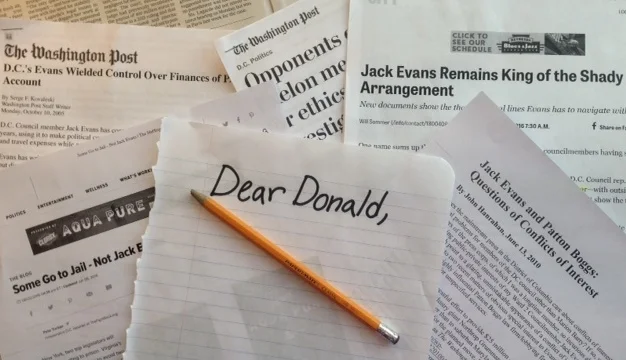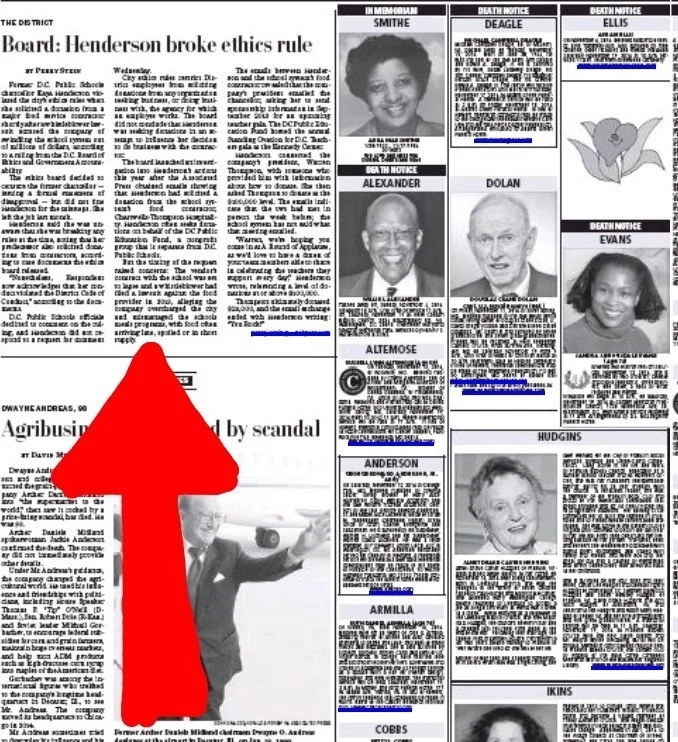Did the Kochs Bring Us President Trump?
Published at HuffPost.
Pundits have plenty of reasons for Republicans’ 2016 electoral success, but none may be as explanatory as a book published in January, before a single ballot was cast.
In Dark Money: The Hidden History of the Billionaires Behind the Rise of the Radical Right, Jane Mayer zeroes in on brothers Charles and David Koch and the secret network they’ve created to push their anti-government zealotry. Their decades of work and billions of dollars help explain the rise of the far Right today.
“During the 1970s, a handful of the nation’s wealthiest corporate captains felt overtaxed and overregulated and decided to fight back,” writes Mayer. “Disenchanted with the direction of modern America, they launched an ambitious, privately financed war of ideas to radically change the country.”
Koch Industries – one of the country’s top polluters – has faced hundreds of millions of dollars in government fines and penalties. Its owners, oil and gas barons Charles and David, would go on to lead this coordinated anti-government war.
Into the Shadows
Charles and David Koch used to be more open about their anti-government extremism.
In 1980, David made his case to the public, running for vice president on the Libertarian Party ticket against Ronald Reagan, who the Kochs felt was too mainstream. The ticket received just one percent of the vote.
“The Kochs failed at the ballot box in 1980,” writes Mayer, “but instead of accepting America’s verdict, they set out to change how it voted.”
Undaunted by the electoral rebuke, Charles and David pushed on, only now away from the spotlight (“The whale that spouts is the one that gets harpooned,” their father used to say).
The brothers began clandestinely partnering with fellow billionaires to secretly fund a vast network of right-wing organizations, dubbed the “Kochtopus” by critics.
The Kochs and their allies learned that “if they pooled their vast resources,” writes Mayer, “they could fund an interlocking array of organizations that could work in tandem to influence and ultimately control academic institutions, think tanks, the courts, statehouses, Congress, and, they hoped, the presidency.”
Foot Soldiers for the 1%
The Koch network has taken decades to perfect. Win or lose, it doesn’t dismantle after elections – if anything it grows. Obama’s presidency in particular spurred billionaires to invest in the Kochtopus.
It wasn’t just the ultra-rich who were stirred up after Obama’s 2008 win. Economic insecurity and the election of the first black president resulted in white backlash, which presented an opportunity for the Kochs to develop what they always needed: an army of dedicated foot soldiers willing to fight for their extreme agenda.
“What we needed was a sales force,” explained David, who, along with his brother, had been unsuccessfully pitching tea party-themed revolts for many years.
With the first hint of the coming Tea Party movement, the Kochs set out “to shape and control and channel the populist uprising into their own policies,” explained economist Bruce Bartlett in Mayer’s book.
A generation earlier, Charles and David’s father, Fred Koch, helped put Koch Industries on the map by working on a major oil refinery in Hitler’s Germany. Mayer revealed this, as well Fred’s dealings in Stalin’s Soviet Union, in her book.
Citizens United, Republican Gains
A year into Obama’s presidency, a second momentous event put even more wind in the Kochs’ sails. The Supreme Court’s 2010 decision in Citizens United lifted restrictions on political spending by outside groups.
Now there was little stopping the Koch network, with its seemingly inexhaustible funding. (Ironically, Charles’ and David’s fortunes grew under Obama from $14 billion to $43 billion each.)
Since Obama took office, the Koch-backed Republican Party has made inroads at all levels of governments, particularly at the state level, where they’ve gained an eye-popping 900 seats.
This makes Republican electoral supremacy more likely for the next decade or more, since legislative districts are drawn by state legislatures, which are now mostly controlled by Republicans.
(The Republican advantage comes from politicized redistricting – stuffing large numbers of Democrats into a few districts, making the surrounding districts more likely to go Republican. The 2016 election illustrates the impact of this gerrymandering: The proportion of House seats won by Republicans was greater than their overall vote.)
The 2016 election – in which the Koch network pledged nearly $900 million – saw Republicans recapture the White House despite losing the overall vote (which Hillary Clinton now leads by over 2.5 million votes).
‘Trump’s Koch Administration’
Donald Trump wasn’t the Kochs’ choice for president, but he still benefited from their powerful network. While the Kochs held back on funding efforts specifically for Trump, they spent heavily to get out the vote for Republicans in key swing states. This helped secure Trump’s win.
Since then, the Trump team has tapped so many Koch operatives for top positions that Politico dubbed it “Trump’s Koch administration.”
High profile selections include Vice President-elect Mike Pence, a Koch favorite.
Trump’s choice to head the CIA, Mike Pompeo, is, like the Kochs, from Wichita, Kansas, and is so close with the brothers he earned the nickname the “congressman from Koch.”
Billionaire Wilbur Ross, Trump’s pick for Commerce Secretary, is a personal friend of David’s.
For Education Secretary, Trump has tapped billionaire Betsy DeVos. The DeVos family, which owns Amway, has partnered with the Kochs for years, focusing on their home state of Michigan. “I have decided... to stop taking offense at the suggestion that we are buying influence,” Betsy DeVos said of her family’s massive political contributions. “Now, I simply concede the point.” (Betsy’s hushand, Dick DeVos, spent $35 million on his unsuccessful 2006 run for Michigan governor. Betsy’s brother, Erik Prince, founded the mercenary group Blackwater.)
Helping lead Trump’s transition team is Rebekah Mercer, whose family has given more than $25 million to the Koch network. Mercer also funds the racist Breitbart News and is close with the site’s former editor, Steve Bannon, who headed up Trump’s campaign and will now be his chief strategist in the White House.
Leading Trump’s EPA transition team is Myron Ebell who, like both Trump and the Kochs, is a climate change denier. Ebell works at the Competitive Enterprise Network, which receives funding from the Koch network.
Plenty of other, lesser-known names from the Koch network have also been tapped by Trump, who pledged to “drain the swamp” in Washington.
Whose America?
“They didn’t want to merely win elections,” Mayer writes of the Kochs and their partners.
They wanted to change how Americans thought. Their ambitions were grandiose – to “save” America as they saw it, at every level, by turning the clock back to the Gilded Age before the advent of the Progressive Era.
What the Kochs have achieved in just a few decades is staggering. But it’s worth remembering they had to go underground to pull it off because their extremist views are so unpopular (registering only one percent in the 1980 election).
Exposing what the Kochs have done to the country is critical to ensuring it doesn’t continue.
In the age of Trump and Koch, there may be no better gift this holiday season than the story told by Jane Mayer in Dark Money.
* Correction: The article previously stated that Democrats won more votes than Republicans in the 2016 House races. That’s incorrect. Republicans captured 51 percent of the two-party vote (and 55 percent of House seats), according to The Cook Report’s Dave Wasserman.
Photo Credit: democracynow.org


